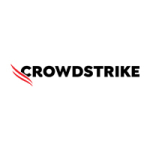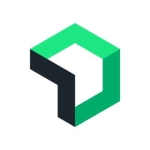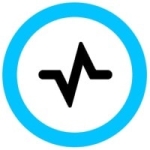We use the product mostly just to pull out the reports, medical investigations, et cetera. As a security analyst, we can look at and pull data. You can make a central hub for a lot of different sources, including servers and endpoints. It makes it easy to check logs for every device connected.
If you are a data analyst, security analyst, or anyone who basically requires a set of data in your database job, and you have to have normalized data represented or, just to check for any patterns, this is quite helpful. With Splunk, you can pull in the data, you can transform it, and represent the data via graphs or pull the data and export it into Excel and perform further investigations. The use cases are quite deep.
With this product, you can go for an in-depth search or just perform a surface-level search. There are different modes in which you can perform searches, and that basically defines the speed of how fast you can get the data. If you are going for a more detailed version offered, it'll take a bit of time. However, they'll give you more and more data. There's also a fast mode in it.
The data which you can pull, you can basically visualize it, you can normalize the data, evaluate it, and convert the data into tables. It's much easier to pull the data, organize it, and normalize it as you are performing the searches. That's quite helpful.
I prefer working with cloud infrastructure like this as you can increase the storage capacity or the license at any time and search for a number of different endpoints. If you want to ingest more and more data, having something like Splunk available on the cloud is preferable.
I take advantage of the incident response part of the solution. If anything happens at the endpoint, if anything happens at the user system, servers, or something like that, my role is to look into the logs, go through other investigations, perform a time scan, and create a timeline of all the events. This helps do that job.
I'm also aware they have a Mission Control. I have actually attended a few surveys on that, however, I haven't really implemented it due to the fact that we are in the middle of a few of the projects, and things are at higher priority as of now. So we haven't really focused on that.
Using Splunk, we can check out what server versions we have. If we just cross-check with the database, we can see if we have any availability and then we can pull in the files. If you have a database, you can perform a query to check for any particular problems in the entire environment. For the threat notifications, it's quite helpful.
Indirectly, it's helped us reduce our alert volume. If you have a list of files, you can run it through the environment and, based on that, create rules and exceptions. This indirectly helps reduce alert amounts. You can go through false positives and sort them out as well and create a rule against them.
It's helped speed up security investigations. Being a central hub of logs, we can jump into a different log or source and jump into any investigation. You don't have to jump from one tool to another. This automatically reduces the investigation time.
There are lots of free learning materials on their website.
Overall, things are quite easy. It's a simple solution.
I haven't explored beyond the security aspect as a data analyst. I haven't noticed any shortcomings so far.
I've been using the solution for more than a year now.
There are different modules, and I haven't activated all yet, however, the stability is okay. I would rate it seven out of ten. If we run into issues, there are materials they provide and online support. You can even call them.
The solution is deployed to one location. It's deployed across the entire environment.
The level of scalability depends on the license you have. You can expand or reduce it based on the environment. It does cost more money to scale, however.
I would rate scalability seven out of ten.
Support is quite responsive. They also offer 24/7 support services.
I previously used Palo Alto XDR.
I also used an email solution whose name I can't recall. You could check emails flowing into or out of your environment.
I wasn't involved in the deployment; the solution was set up when I arrived.
That said, I did go through some setup videos, and the process does not look difficult. They provide the steps for every aspect. There's also always support you can reach out to if you have questions.
There may be some maintenance required in terms of upgrading. When you upgrade the version, you may need to upgrade your sensors on the endpoints. However, Splunk is quite compatible with other devices, so it's not difficult. In our company, the administrators handle maintenance.
I haven't witnessed an ROI in terms of how I'm using the tool.
It's mostly for EDR. You can cover servers as well; however, that requires additional licenses. Pricing is based on usage. As an EDR specialist, I interact with the tools and perform investigations. I don't deal with licensing directly.
This is quite new to me. I've only recently started working with Splunk. I used to work in EDR. It took me two to three months to understand the internal architecture of the organization, and based on that, I can use Splunk for all kinds of searches. So, how long it takes to realize the benefits of Splunk depends on the person and the complexity of the environment.
I did not evaluate other options. I adopted this tool when I joined my current organization.
We're a Splunk customer.
To those considering just going with the cheapest solution, it depends on your level of comfort with support. If you have a cheaper tool, the support would be addressed. With Splunk, that's the difference - their support response. If you have a tool with a good license, you will be able to get immediate help if there's any vulnerability.
I'd rate the solution eight out of ten.
I'd advise others to take time to learn the solution and develop skills. It's all about DSL queries. If you are off on queries, it won't give you any results. You need to be accurate with your SQL commands.




















